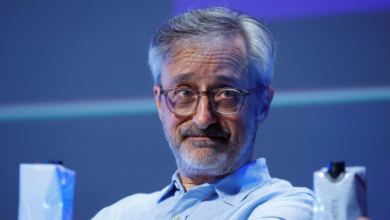Generative AI Will Allow Bigger, More Immersive Worlds, Says EA, and Developers Were ‘Hungry’ for It

Ever since last year, generative AI has been on everyone’s lips as it promised to disrupt most industries. The highly tech-based games industry is, of course, no exception.
Speaking to investors during the Q4 2024 earnings call, Electronic Arts CEO Andrew Wilson said the company estimates over half of its development processes could be improved through the use of generative AI, eventually leading to the creation of bigger, more immersive game worlds over the course of three to five years. Wilson also commented that EA studios were ‘hungry’ to tackle generative AI since it could accelerate the rush to gaming’s holy grail: better, more innovative games created more quickly. Here’s the excerpt from the transcript (via The Motley Fool):
As we think about the first pillar of generative AI for us, we’re really looking at how it can make us more efficient, how it can give our developers more power, how it can give them back more time and allow them to get to the fun more quickly. When we think about that, our expectation is that there is a meaningful opportunity for us. We’ve done analysis across all of our development processes. Right now, based on our early assessment, we believe that more than 50% of our development processes will be positively impacted by the advances in generative AI.
We’ve got teams across the company really looking to execute against that. The second phase for us, of course, is how we further expand our games. How do we build bigger worlds with more characters and more interesting storylines? If efficiency starts to really take place over the next 1-3 years, our expectation is that over a 3-5 year time horizon, we will be able to, as part of our massive online communities and blockbuster storytelling, build bigger, more immersive worlds that engage more players uniquely around the world.
Perhaps on a 5-year plus time horizon, we think about how we take all of those tools we create and offer those to the community at large so that we can actually get new and interesting and innovative and different types of game experiences. Again, not to replace what we do but to augment, enhance, extend, and expand the nature of what interactive entertainment can be in much the way YouTube did for traditional film and television. One of the great advantages, of course, we have is we do have 40 years of data. As I think about efficiency over 1-3 years, expansion over 3-5 years, and transformation on a 5-year time horizon, it’s actually very plausible that with 40 years of owned data that we have to feed into these models, we might be able to accelerate that time frame.
I would tell you, there was a real hunger among our developers to get to this as quickly as possible because again, the holy grail for us is to build bigger, more innovative, more creative, more fun games more quickly so that we can entertain more people around the world on a global basis at a faster rate.
The EA executive did not specify what kind of generative AI he was specifically referring to. The most consumer-facing is, of course, the NPC AI that Inworld and Convai have showcased recently, but there are many other use cases for game developers.
In other EA news, the next Battlefield game has the biggest development team the franchise has ever had, but it’s not coming out this year. However, the publisher has another game scheduled to launch in this fiscal year. It likely is Dragon Age: Dreadwolf, which should be unveiled at Summer Game Fest by BioWare.



